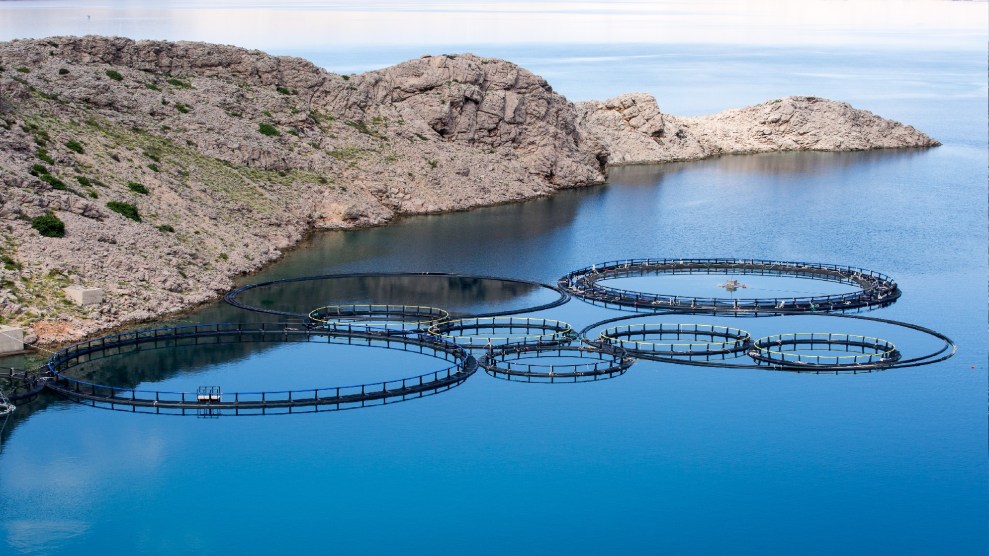Criticizing the Intergovernmental Panel on Climate Change has been a favorite pasttime of climate skeptics since it was first formed more than two decades ago. But the panel and its leader have been under seige in recent weeks among even some mainstream scientists, especially after it became clear that the last assessment report contained some sloppy errors on the Himalayan glaciers. Participants in the IPCC process are now calling for a major makeover of the panel—or for it to be scrapped altogether.
The new issue of the journal Nature features a section of opinion pieces from scientists on the future of the panel, “IPCC: cherish it, tweak it or scrap it?” Recommendations range from doing away with panel’s current system of using volunteer authors and instead hiring a full-time, paid staff, to establishing a Wikipedia-style forum where scientists can exchange ideas and information. “The IPCC needs a complete overhaul. The structure and process are past their sell-by dates,” writes Mike Hulme, a professor at Britain’s University of East Anglia and lead author of IPCC reports.
Hulme writes that it is irrational to expect a single panel to create an exhaustive, integrated report on all the relevent climate-change knowledge. Instead, he suggests getting rid of the IPCC after the next assessment, expected in 2014, and replacing it with new and more focused groups of experts. One group would have members selected by national academies of science that look at the physical science, and then there would be five to ten regional groups that look at the local fallout from warming temperatures, and so on.
The IPCC is “currently experiencing a failure of trust that reveals flaws in its structure,” wrote Eduardo Zorita, a scientist at the GKSS Research Centre in Germany, who recommends replacing the volunteer panel with a 200-person full-time staff. The current model relies on a “diffuse community of government-nominated academic volunteers occupying a blurred space between science and politics, issuing self-reviewed reports under great stresses and unmanageable deadlines,” he writes. “Its undefined structure puts it at the mercy of pressure from advocates.”
The idea for a climate Wiki comes from John Christy, an atmospheric scientist at the University of Alabama in Huntsville and a lead author on the IPCC’s Third Assessment Report. While Christy agrees that climate change is occurring and that human activity is a factor, he classifies himself as “a strong critic of scientists who make catastrophic predictions of huge increases in global temperatures and tremendous rises in sea levels.” He also offers some harsh criticism of the panel’s selection process:
The IPCC selects lead authors from the pool of those nominated by individual governments. Over time, many governments nominated only authors who were aligned with stated policy. Indeed, the selections for the IPCC Fourth Assessment Report represented a disturbing homogeneity of thought regarding humans and climate. Selected lead authors have the last word in the review cycle and so control the message, often ignoring or marginalizing dissenting comments. ‘Consensus’ and manufactured confidence ensued.
In addition to opening up the process to a wider body of contributors, a Wiki would give the public better insight into the scientific process, which would ideally lead to improved trust and greater public knowledge of the issue. But someone would have to pick who gets to contribute to it. There are some basic scientific credentials that should be required, which would surely be hotly debated. One can imagine Exxon, for example, being very eager to “contribute” to an open-source report.
Many scientists would also be apprehensive about letting the public see how the IPCC sausage gets made. Most laymenare unlikely to understand scientific nuance or process. Many climate scientists already feel like they’re under attack by skeptics looking to exploit every uncertainty or disagreement.
Jeff Price of the World Wildlife Federation, who has covered climate adaptation in previous assessment reports, also points out that because the reports are released only once or twice in a decade, it’s impossible for them to keep track of the most recent science. He suggests that the IPCC, or a similar body, should produce an annual review synthesizing the latest developments.
And some reforms are already underway at the IPCC, explains another article in Nature written by 19 different scientists. The next assessment report will be assembled using an improved collaboration across the scientific disciplines—physical, biological, and social—to create “plausible scenarios to investigate some of the most challenging and important questions about climate change confronting the global community.” The authors say it will reduce the time between assessments by two years, meaning scientists will be better able to provide up-to-date information to policymakers. But the question remains, Will these proposals be enough to restore the credibilty the IPCC has lost in recent weeks?













